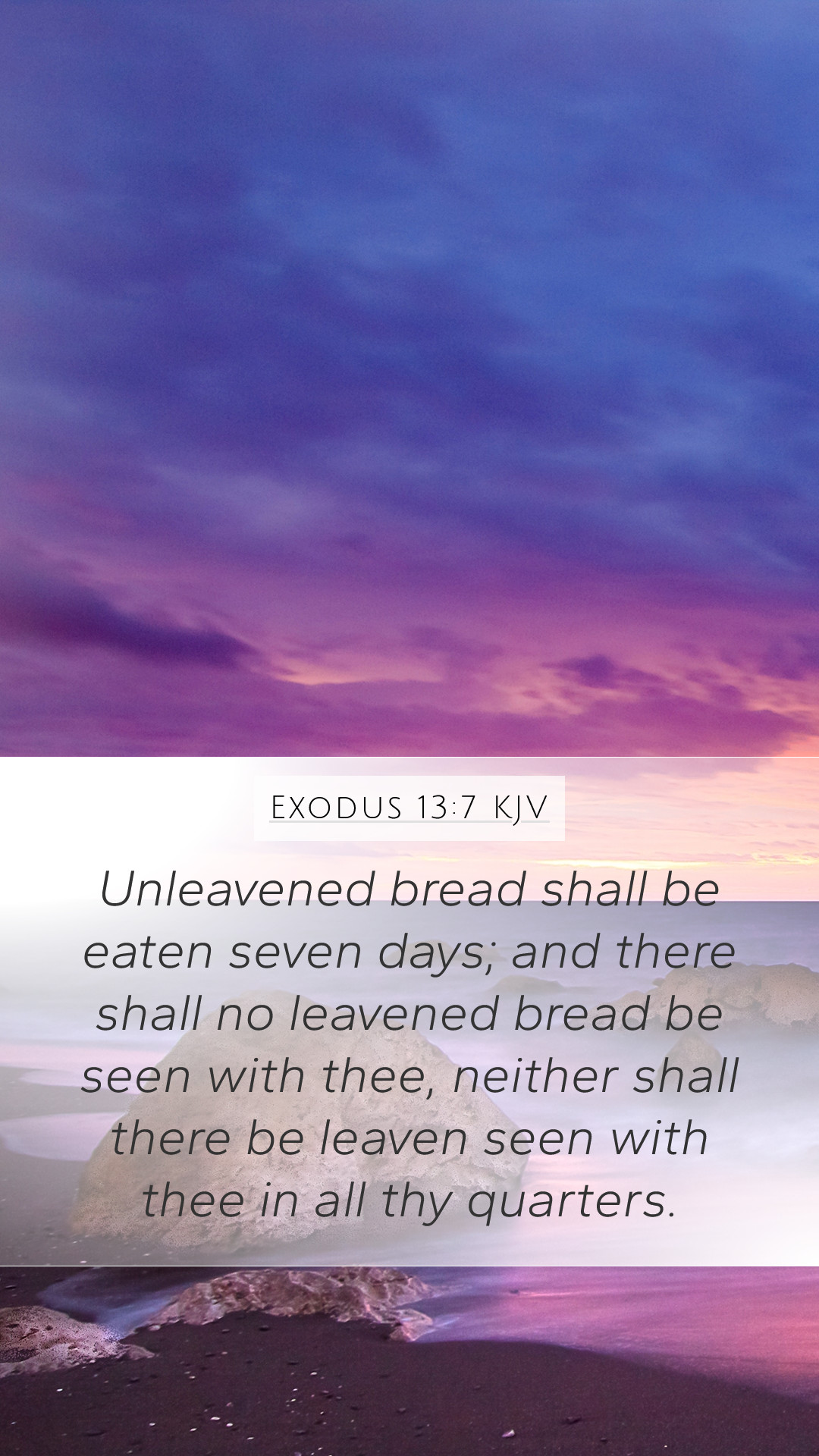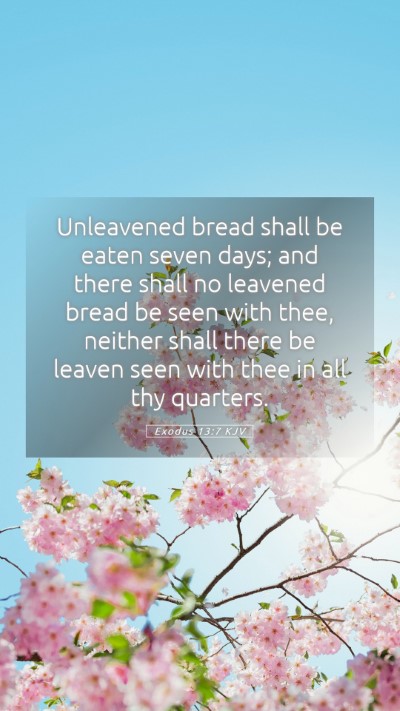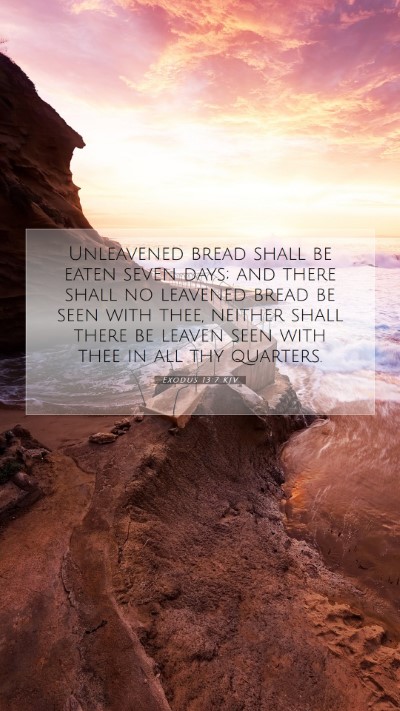Bible Verse Meaning of Exodus 13:7
Exodus 13:7 states: "Unleavened bread shall be eaten seven days; and no leavened bread shall be seen with thee, neither shall there be leaven seen with thee in all thy quarters."
Understanding the Command
This verse is part of God’s instruction regarding the Passover and the Feast of Unleavened Bread. It emphasizes the importance of removing leaven from their homes and their diet during this sacred time, symbolizing purity and separation from sin.
Biblical Exegesis and Commentary
Commentators such as Matthew Henry highlight that leaven is often used symbolically in Scripture to represent corruption and sin. Thus, the removal of leaven during these seven days signifies a call to holiness and a reminder of the impending deliverance of the Israelites from Egyptian bondage.
- According to Albert Barnes, this command serves to help the Israelites remember their quick departure from Egypt, where they did not have time for their bread to rise, illustrating the urgency of God’s deliverance.
- Adam Clarke emphasizes the practical implications of this command, noting that leavening agents take time to change the nature of bread, hence its removal signifies a transformation in the lives of the Israelites in their new covenant with God.
Significance of Unleavened Bread
The significance of unleavened bread extends beyond merely a dietary law; it serves as a foreshadowing of Christ’s sinless nature. Just as leaven was removed during Passover, it symbolizes the removal of sin, which is fulfilled through Jesus Christ.
Application of the Verse
For contemporary believers, the call to observe unleavened bread can be interpreted as a metaphor for living a life that is free from sin and moral corruption. This verse encourages believers to engage in self-examination and to cultivate purity in their spiritual walk.
Connection to Bible Study and Resources
When studying this verse, various Bible study resources can provide deeper insights:
- Use online Bible study tools for a verse-by-verse breakdown to better understand context.
- Join a Bible study group to discuss and share interpretations of the themes of purity and redemption.
- Engage with Bible study guides focusing on the symbolism of bread and the significance of dietary laws within biblical narratives.
Cross References
Exodus 13:7 connects deeply with several other scripture passages:
- 1 Corinthians 5:6-8 - Paul connects leaven to sin in the Christian community, urging believers to be unleavened in their actions.
- Matthew 16:6 - Jesus warns His disciples about the "leaven" of the Pharisees, illustrating the perils of hypocrisy.
- Luke 22:1 - Here, the feast of unleavened bread is referenced, linking this tradition to Jesus's Last Supper.
Final Thoughts
Understanding Exodus 13:7 involves recognizing its rich symbolism and historical context. Through Bible verse interpretations, individuals can grasp the call for spiritual sanctity that echoes throughout this instruction. Engaging deeply with verses like this allows believers to reflect on their own lives and the changes needed to align with God’s purpose.


